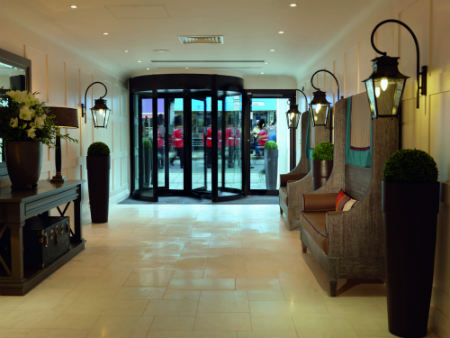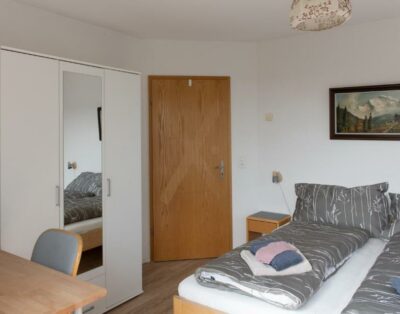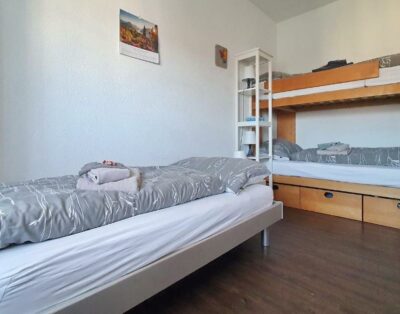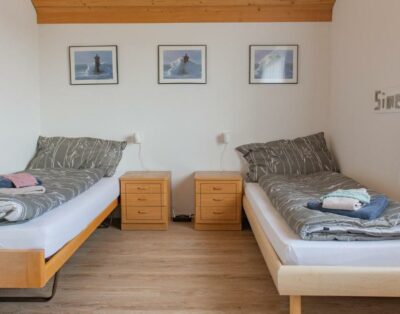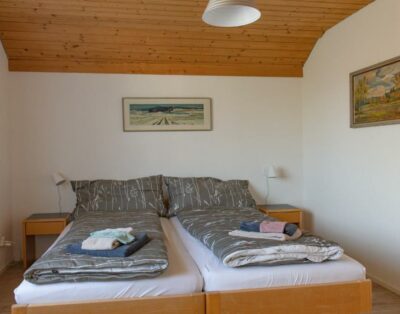How to give your guests a world-class welcome

The Savoy’s guest relations manager Paula McMinn has the prestigious honour of being named the best receptionist in the world, but what can smaller or budget hotels do to make their welcome memorable? Rosalind Mullen reports
Your hotel guests can get a warm, fuzzy feeling from something as simple as a smile from the doorman, but how can you inject the “wow” factor into a welcome that makes your hotel stand out from the crowd?
Who better to ask than the Savoy’s Paula McMinn (pictured), named best receptionist in the world at the David Campbell Trophy finals in Singapore in January.
McMinn, 24, who has been a receptionist at the 268-bedroom, five-star hotel since February 2014, believes that besides a smile it is crucial to always fully engage with the guest to make them feel valued, whether they are returning or new to the hotel.
“People quickly notice when you are not giving them your full attention. It’s about greeting them by name, adapting to their mood and really taking an interest,” she says.
That use of the guest’s name is crucial. The Savoy uses the Vocera communication system so the doormen can alert McMinn to the names of new arrivals. They check luggage labels or ask for the guest’s name so McMinn can be standing in the front hall, ready to welcome them and add that extra pizazz.
“Guests are usually surprised when we know their name,” says McMinn, who has recently been promoted to guest relations manager. “This is where their journey at the Savoy begins. I shake their hand on introduction. This way I have taken control of the situation and there is no space for the guest to feel unsure of where to go next or to feel unwelcome.”
A lot of McMinn’s flair is down to her personality, says assistant front office manager Matthew Woodhead. “Paula always has an enormous smile on her face, which already projects a warm and welcoming appearance. She then gives a guest her full attention, maintaining eye contact and being fully engaged with what they are saying. She also notices what a guest’s body language is showing so she can adapt her own behaviour appropriately.”
Fellow assistant front-office manager Rebecca Heath agrees. “Paula is sincere, engaging, open-minded, intelligent and caring. This combination makes her memorable to guests.”
Most importantly, she treats all guests as individuals. “It is not a cookie-cutter welcome. She is warm and friendly and reads guests very well,” adds Heath.
While you can’t train people to acquire this type of personality, you can make it easier. The Savoy recruits outgoing, engaging and positive staff for its “arrivals team”, which includes doormen, luggage porters, butlers and receptionists. There is on-the-job and departmental training. For receptionists, this takes up to three weeks and includes role play. Managers audit receptionists using a radio system to listen to the conversations, and photos of regular guests or VIPs are put up in the office so the team – particularly the doormen – can easily recognise them.
Personalised service
But the Savoy’s welcome starts earlier still. The reservations team try to discreetly gather information about the guest when they confirm the booking – the ETA, whether the visit is for a celebration, if they have a special requirement, and so on. The rest of the hotel can then anticipate any needs during their stay.
It’s a similar strategy at Ryan Giggs’ and Gary Neville’s new Hotel Football Old Trafford (hotel’s mini bar pictured below). The team opened the 133-bedroom hotel in March and have kicked off with a remit to create a memorable, personalised welcome.

Stuart Procter, managing director of GG Hospitality, explains: “Before guests arrive we contact them via email, phone or social media channels to ask if they have any special requirements and the reason for their stay. If we find any guest preferences then we aim to deliver these: a favourite beer or wine, sweets or a chocolate bar. Personalisation is key. It makes a real difference.”
This contact also gives the team an opportunity to tell guests about the other aspects of the hotel, such as Café Football, the Old Trafford Supporters’ Club and the rooftop football pitch.
Homely touches
Although the latest Spafinder Wellness 365 report revealed that one of the top 10 trends in the US included a free massage on arrival, you can rest assured the simple things count just as much. Many hotels here in Blighty use food to create a warm welcome.
At the four-star Macdonald Windsor hotel (pictured below), for instance, there is a themed refreshments table in reception. In spring, the table is decorated with daffodils, chocolate eggs and Tom’s Tipple, a fruity lemonade. During Easter, there are hot-cross buns; throughout Wimbledon there are strawberries; and Christmas sees chocolates and clementines.

“It’s such a simple, affordable initiative, but one that makes all the difference in making the hotel a home-from-home,” says general manager Beverley Molmans. “There is a strong sense of family among the hotel team and we want to ensure guests feel part of that.”
Molmans also has a policy of introducing guests to the staff, giving them a tour of the herb garden and providing tips on where to visit in the city. She believes it’s the personal touches that boost customer loyalty and, in turn, the bottom line.
“Feedback from our guests tells us that our seasonal welcome display is the first thing they notice and that it makes us stand out from the competition,” she says.
Another four-star brand, DoubleTree by Hilton, is famous for offering its guests a warm chocolate-chip cookie at check-in. The company won’t divulge the investment it makes in this perk, but it must pay off. It has been doing it since 1986 and some 77,000 freshly baked biscuits are given away every day throughout its 400-strong portfolio worldwide.
At the five-star Berkeley in London, guest relations executive James Fleming tackles the family market by making sure children are welcomed with small gifts.
“At reservation stage, details and activities of the children are taken so we can customise their stay. We have families visiting Harry Potter World or the theatre, so we arrange a little surprise when they return from their day out,” says Fleming. “Once, the guest relations team organised Harry Potter costumes and wands, with the latest DVD and CD playing when the children returned to their room.”
Fleming says the investment in creating memorable experiences pays off, driving up the percentage of return guests.
“Some guests come once a week to stay with us, rather than buying a home in London. They start to feel comfortable with us. Regular guests also generate new business because they suggest the hotel to friends and family. They also book special occasions with us, such as weddings and birthday dinners.”
That all sounds wonderful, but how can budget hotels compete with that level of welcome? Yotel, for instance, introduced airline-style, self-service kiosks back in 2007 and now has them at its three airport hotels.
“Guests really like them,” says marketing director Jo Berrington. “Our service style is warm and friendly, so we see self-service check-in as a way of freeing up our [staff] to help guests with other things.”
On average, 97% of guests choose to check-in at the kiosks – those who don’t tend to need to change their reservation. In airports, the majority of guests are staying for only a few hours and simply want to get to a machine, check-in within less than a minute and go straight to their cabin for a shower and a few hours’ sleep, maxing out the time they have to rest before their next flight.
“If we have all the information we need about a guest, why ask them to stand in a queue and fill in another form to give them a key? Guests can interact with our “crew” as much or as little as they like,” says Berrington.
Yotel also has plans to offer online check-in via an app. Guests will scan a barcode at the kiosk to get a keycard. Berrington reckons they could be on their way to their cabin in 15 seconds.
At the Hoxton hotel in London’s Shoreditch (pictured below), guests pre-pay for their room, reducing check-in time to just 20 seconds, but there is still an emphasis on the welcome. Brand director and former general manager Timothy Griffin says: “We have big personalities around to make sure guests’ arrival is fun.”

World Host executive director Sharon Glancy agrees that budget hotels can offer their own brand of welcome. “There is normally someone around to help with the technology. Staff can have more rapport with them rather than if they were checking the guest in. There is no barrier and it can be more relaxed.”
However, you have to manage guest expectations, says Monica Or, founder of Star Quality Hospitality Consultancy. “Make the guest aware prior to arrival of how the process works, or they may be disappointed that they did not have any human interaction or they may be daunted by your technology.”
She adds: “With self-check-in hotels, the welcome is going to come from what the guest can see as well as what experience they have with your technology. Ensure the exterior and interior of your property is immaculate and the self-check in facility is easy to use.”
Expert tips to ensure a perfect welcome
First impressions are crucial. Ensure your hotel is clean and presentable outside and inside. Ensure the paths are swept and flower boxes are watered. The hotel should be in a good state of repair with clean windows. Keep your car park litter-free, and have clearly marked-out parking bays and good signage.
Make sure the hotel door is opened for the guest by a courteous member of staff who smiles and warmly greets them with a “Good morning” or “Good afternoon”. Ask if your guest needs assistance with luggage – but don’t assume they are staying at the hotel. Polite small talk should quickly ascertain the reason for their visit.
If a guest is staying, escort them to the reception desk and introduce them to the receptionist who will take them through the check-in process without fuss, using their name to build a rapport. The desk should look professional and uncluttered. The receptionist should be able to locate booking details easily, have a room ready and be able to clearly explain how to get there. If your hotel has a concierge team, they should be on-hand to help with luggage.
If your guest is staying for a special occasion, leave a small gift, such as chocolates, a fruit bowl or a bottle of Champagne with a handwritten welcome card from the hotel manager.
Once in the room, staff should show the guest where the main amenities are. They should also give their name so the guest can contact them if they need anything. They should then wish the guest a pleasant stay using their name.
Classic mistakes when welcoming guests
- Making assumptions – all guests are individual and have different needs and expectations.
- Not providing common courtesy – opening a door, and offering assistance with luggage is part of being hospitable, even if some guests are more independent now.
- It is important to address and refer to your guests by their name and not their room number.
- Use of language sets the tone of your hotel. “Good morning” or “good afternoon” is more professional than “hello” or “hiya”.
- When you have shown the guest their room, ask: “If there is anything else I can do, please let me know”, or “I hope you enjoy your stay with us”. This shows you are open to assisting your guest further. Conversely, saying: “Thanks, bye”, gives the impression you want to get rid of them.
- Remember, a smile you don’t mean is often worse than not smiling at all.
By Monica Or, founder of Star Quality Hospitality Consultancy and author of Star Quality Hospitality – The Key to a Successful Hospitality Business (www.starqualityhospitality.co.uk)
Training for a great welcome
Customer service trainer World Host trained the acclaimed Games Makers at the London 2012 Olympics, pushing Britain into ninth place in the Nation Brands Index as most welcoming country (though it is now 13th).
Executive director Sharon Glancy says: “You can recruit for a warm smile and engaging personality, but if they are not confident they won’t be successful. Training can create confidence but first impressions are critical: how staff look, if they are clean and presentable, and if they can listen and remember names.”
She advises giving staff phrases to use, including: “How was your journey?” or “What are your plans while you stay with us?” She adds that staff need to know when to stop talking, too.
“You always feel special if you are given something extra, such as two free sessions in the spa. Welcome drinks are also good, or you could give the guest a tour. Hotels can make you insular and this can bring people out.”
On a recent hotel stay, Glancy was impressed by an email updating her on what weather to expect, the concierge’s name, advice on getting from the airport and a questionnaire on what she might want to do. “It saved me the research,” she says.
Another initiative is to show the guest their room and then ring back in 15 minutes to check if they need anything. This pre-empts the guest and gets their visit off to a good start. Some hotels even give staff a budget to help put something right for guests who aren’t happy.
“It’s all about walking in the customer’s shoes. Going through the front door – what does the reception look like? Can you see the receptionist? Is eye contact obscured? You may need someone to take the guest’s name and introduce them to the receptionist.”
Of course, different cultures value different aspects of being made welcome. World Host’s Cross Cultures Programme trains staff in a half-day workshop in being mindful of what might, for instance, upset a Chinese visitor. Nowadays, most bookings are online, but you may need people on-hand in reception who can speak a different language.
“The universal language is the smile. Staff can also use a name badge stating what language they speak to help guests find them,” she says.
Glancy warns that customer touch-points have grown due to the internet. Hotels need to ensure they maintain service standards on Facebook and Twitter, for example, to help the concierge have a better rapport.
Source : https://www.thecaterer.com/articles/356917/how-to-give-your-guests-a-world-class-welcome


